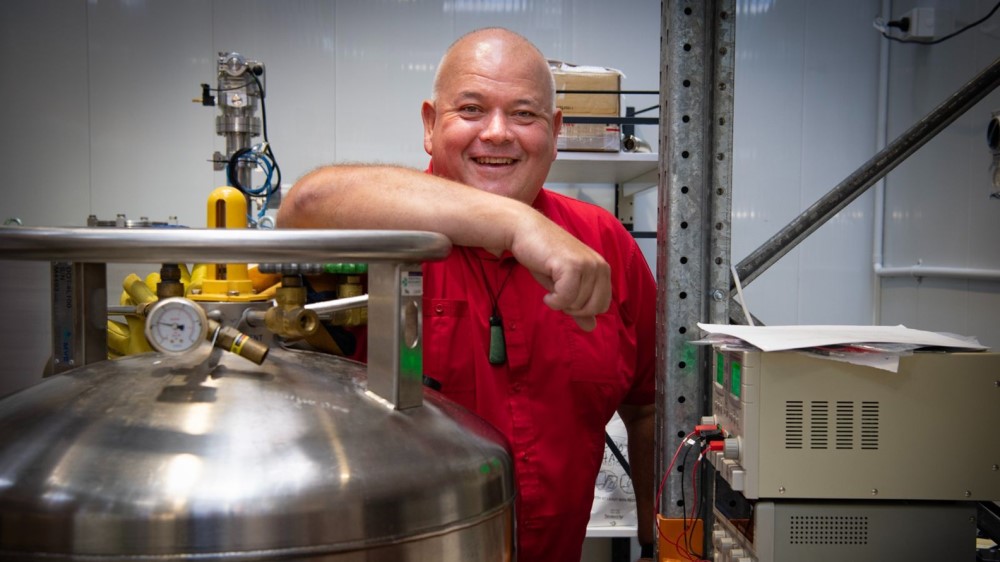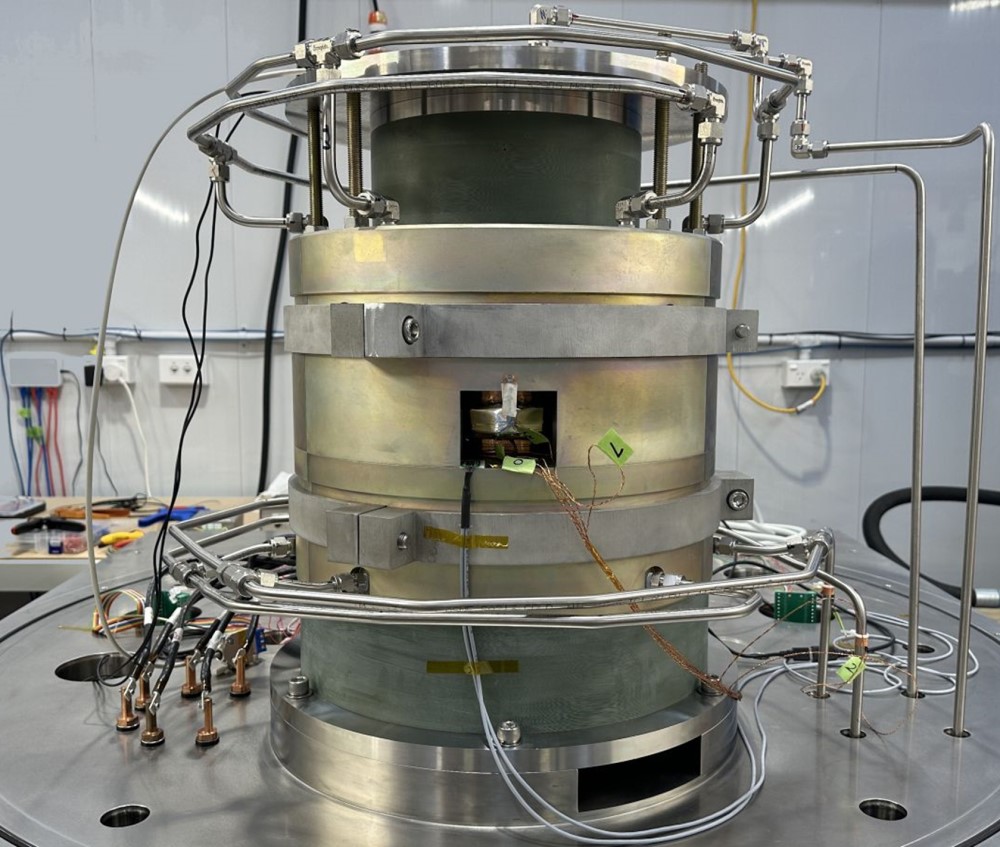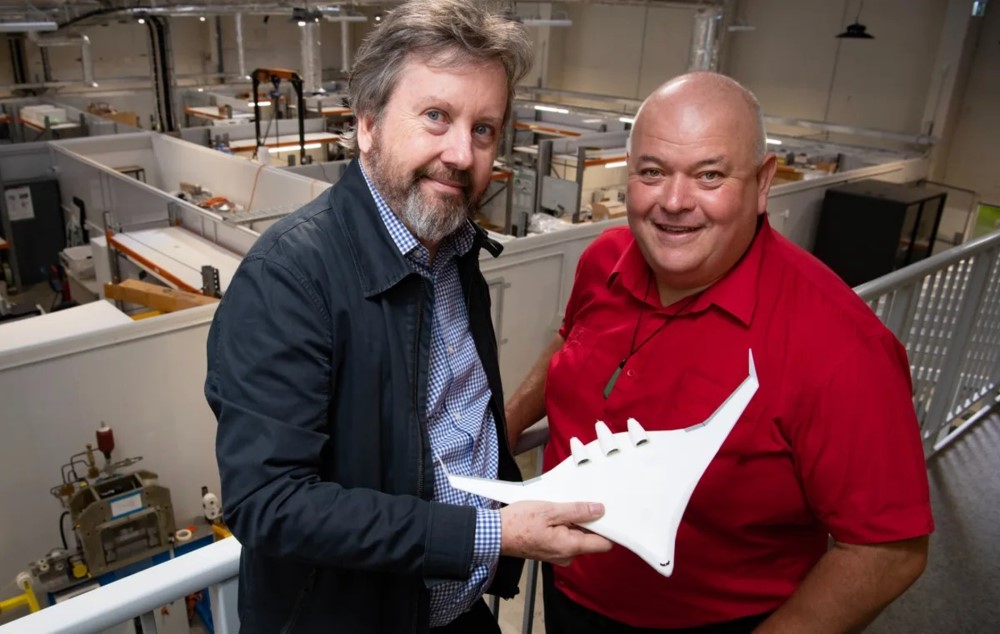Research accelerates New Zealand’s heavy transport future
The Robinson Research Institute’s advanced energy technology platform is accelerating the electrification of New Zealand’s aviation and heavy transport fleets and reducing our carbon emissions. By building world-class expertise in power electronics, cryogenics and more, they are driving sustainable transport solutions with global impact.
On this page I tēnei whārangi
New Zealand's heavy transport and emissions challenge
New Zealand’s road and aviation sectors are primarily fossil-fuel-fed. They account for 70 per cent of the country's carbon emissions and heavily rely on imported oil and gas to keep them running.
This dependency on imported fuels for heavy transport is a significant economic burden and risk to New Zealand's 'clean, green' international image, says Professor Rod Badcock, Chief Engineer at Robinson Research Institute.

Professor Rod Badcock has been with the Robinson Research Institute at Victoria University of Wellington for almost 20 years.
“We have an electricity network that is the envy of the world,” he says.
“More than 90% of the energy we produce is clean and renewable, but we’re stuck powering our trucks and planes with environmental pollutants.”
To ensure the opportunity isn’t lost on New Zealand, the Robinson Research Institute, with crucial support from the Ministry of Business, Innovation and Employment’s Strategic Science Investment Fund, is paving a sustainable and carbon-free runway for a heavy transport future.
Investing in sustainable solutions
The Robinson Research Institute was awarded MBIE funding in 2020 to establish one of four advanced energy research platforms for New Zealand.
“New Zealand has significant advantages for this type of work,” says Rod.
“As well as our abundant water holdings and renewable energy resources, we have strong foundations in power electronics, superconductivity and cryogenic systems. But these natural assets and areas of expertise need to be coordinated and connected to accelerate the electrification of heavy transport.”

The Robinson Research Institute’s advanced energy technology platform is focused on high-power electric motors for large-scale transport.
A blueprint for heavy transport and aviation
The Institute’s research platform has taken a holistic, system-level approach, seeking long-term change rather than quick wins.
“Yes, we’ve been addressing the technology challenges, but we’re also addressing the infrastructure, maintenance, and operational requirements needed for New Zealand to transition to sustainable heavy transport and aviation successfully and permanently,” says Rod.
“We’ve been able to bridge expertise across academia and industry and are now in a position of having the key capabilities that actually accelerate not just the heavy trucks, which is an early adopter, but the aviation fleet internationally who want our help.”
“We’ll see small hybrid-electric and battery electric aircrafts doing postal routes within a couple of years; domestic commercial flights before 2030; but long-haul, cryogenic, superconducting propulsion, the ultimate goal of this research platform, is more of a long game.

This next-gen homopolar superconducting electric motor was designed, built and tested at the Robinson Research Institute.
Rod and his team have become a trusted research partner of Air New Zealand, helping the national carrier to look at future scenarios from a whole of system perspective. They have collaborated with polytechnics on new training courses so there is a pipeline of skilled practitioners capable of maintaining and servicing the new electric and cryogenic propulsion systems. And they have nurtured strong international partnerships with organisations like NASA, Airbus and Pratt & Whitney, many which continue to seek access to our growing expertise and world-class capabilities.
“By upskilling practitioners and fostering strong partnerships, as well as ‘doing the science’, we are strategically positioning New Zealand as a global leader in these transformative technologies,” Rod says.
Ushering in a zero-emissions future
The platform has been pivotal in developing critical capabilities across power electronics, cryogenics, and superconducting systems. It demonstrates the value of long-term, coordinated public investment in building technological capabilities to address complex challenges and achieve commercial outcomes.
“The expertise and momentum we’ve generated within and around the platform has been and will continue to be critical in shaping New Zealand's future in electrified heavy transport and aviation,” he says.

Professor Rod Badcock (right) with Dr Grant Lumsden holding a model of an electric aeroplane of the future.
Learn more about the advanced energy research platforms

